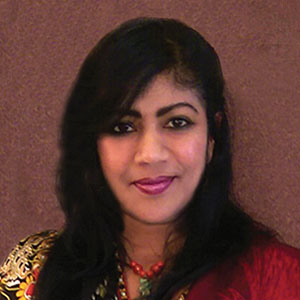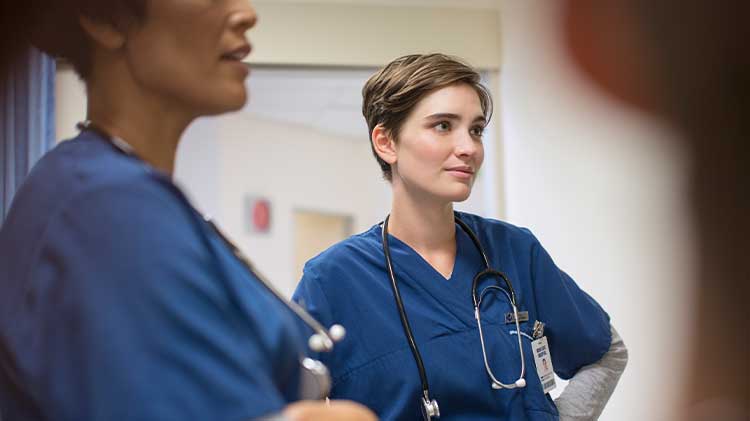The sweet spot between creativity & medicine
23 Jul 2024
I had the pleasure of interviewing Michelle – a charming and down-to-earth personality with a quirky sense of humour, and an innate appreciation of the smallest things in life. Here’s what she had to say.
Q1. What motivated you to become a doctor?
I hailed from an era of sub-optimal school career counselling and a gender-inequality empire still clinging to its reign. So, when it came to choosing a career, and all I had was a vague desire to ‘help people’, I was told I should become a nurse. A slap of realisation came at subject selection time that I had the marks to do medicine – and a quick pivot had me stream right into medicine at UWA.
Choosing emergency medicine as my specialty wasn’t an active choice, more like being washed along the tide of inevitability. In an early RMO ED term, Dr Steve Dunjey (the great god of Perth emergency medicine) said, “You’re rather good at this ...”. That was that. Plus, I loved the uncertainty and the unknowns of emergency medicine, the raw humanity, and the fact it was all action and few meetings. I was wrong about that last one!
Q2. Has writing always played an important role in your life?
Writing is vital to me. Particularly fiction. It’s my only way of making sense of the world. Writing also stops me sleepwalking through life. Having to pay attention; tear the covers off the tedium of reality; find the beauty in everyday things and transform them into the music of language… writing might be the only thing that saves me.
Q3. How do you juggle life as a clinician, educator, author, wife and mother – while still retaining your sanity?
There is no balance, and possibly only a shred of sanity remaining. My habits are unswervingly bad, habits I’d recommend to nobody. But if you really love doing something, there’s always time to do it. And the end point makes it all worthwhile – when you’re able to share your hard work with a few other souls, and have them actually enjoy spending time inside your precious creation.
Q4. Tell us about your latest book, Tiny Uncertain Miracles.
This book is about fate, faith, and the question of why we humans believe in the things we do. It follows Marick, a (not very good) chaplain who never could make it to priest, as he wanders the labyrinthine tunnels of a hospital.
There he meets a scientist, Hugo, who has commandeered a forgotten laundry to use as a makeshift laboratory, where his prize E coli bacteria make proteins for a little side hustle. One day, Hugo discovers his bacteria have begun making gold.
Then Marick, the man of faith (who believes in science) and Hugo, the man of science (who reads his horoscopes) need to understand what’s happened. Is it science? A hoax? Alchemy? A miracle?
Q5. What sparked the idea for this storyline?
I admit the concept is rather a stretch. I don’t have any good excuse for the bacteria making gold at the heart of the story, except that when the muse floats a line into your head and it sticks, you’ve got to do something with it!
Of course, it’s not a book about alchemy at all – but the strengths of our beliefs, the possibility of occurrences that aren’t always explicable (sound familiar, fellow clinicians?). Universal themes and subtexts.
Plus, it felt like quite an important book to write, in the current wave of anti-science we’re all struggling to understand.
Q6. You teach doctors about the sweet spot between creativity and medicine – can you expand on this?
It’s taken me a long time to truly appreciate how important creativity is in a fulfilling life, whatever form that creativity may take.
My job in medicine now is to help inspire those following after me, to find joy and grace and awe. Without it, this intensely difficult career we’ve committed to can be overwhelming to the point of being destructive.
Addressing creativity is addressing humanity. Plus, all doctors have a novel in them. I love helping people find it.
Q7. Any words of advice for doctors wanting to pursue emergency medicine?
It’s an incredible specialty. The job will remain deeply challenging and, like many areas in medicine, puts you at risk of moral injury (being prevented from taking the actions you know to be morally and ethically right). But meeting those challenges can also allow you to soar.
When seniors are angry, rude or dismissive, it often comes from a place of fear or exhaustion, or other personal issues. While you should never tolerate a medical colleague being rude to you or others, it does help to understand where they’re coming from – that so many of us suffer under the weight of expectations and responsibilities, and not quite living up to almost impossible standards.
Start thinking early about your own area of interest or specialty. You don’t want to be well into your 50s and purely doing clinical emergency medicine; 10-hour shifts day after day in the hothouse. Diversify your specialty. It’s good for you and the department.
The human body is preposterously fascinating. Too complex for our little human brains to truly comprehend. And in medicine, we get to see its wonder all the time. So, remember to find the awe in the everyday. Learning will be lifelong, and it will be amazing.
Be kind to yourself – so clichéd but true. Be responsible for your own high standards. Find things that bring you joy. And DO THEM.
Click here to preview and purchase Tiny Uncertain Miracles.
Stay updated with the latest medico-legal content |
Subscribe to MDA National’s biannual Member publication, Defence Update, for the latest medico-legal updates, articles and case studies.
Professional boundaries in healthcare - Part 1
Boundaries with patients present in numerous ways every day and all health practitioners
11 Aug 2025
Understanding Professional Medical Indemnity Insurance
Do you understand the ins and outs of professional medical indemnity insurance?
11 Aug 2025
Professional boundaries in healthcare - Part 2
Boundaries with patients present in numerous ways every day and all health practitioners
11 Aug 2025
Understanding changes to the Fair Work Act
What are the changes to the Fair Work Act and what is my role?
22 Jul 2025






